Filter by
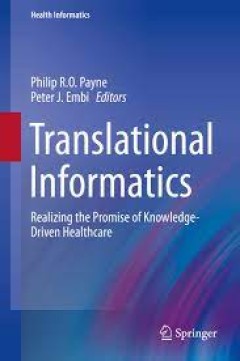
Translational Informatics
Integrative and translational methodologies and frameworks have transformed modern biomedical research and the delivery of clinical care. This shift has been manifested in a number of ways, including the rapid growth and increasing availability of high-throughput bio-molecular instrumentation and analysis platforms, innovative clinical research programs intended to accelerate knowledge translat…
- Edition
- 1
- ISBN/ISSN
- 978-1-4471-4646-9
- Collation
- IX, 185
- Series Title
- Health Informatics
- Call Number
- -
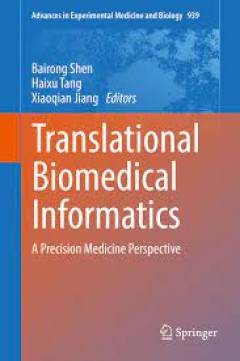
Translational Biomedical Informatics
This book introduces readers to essential methods and applications in translational biomedical informatics, which include biomedical big data, cloud computing and algorithms for understanding omics data, imaging data, electronic health records and public health data. The storage, retrieval, mining and knowledge discovery of biomedical big data will be among the key challenges for future transla…
- Edition
- 1
- ISBN/ISSN
- 978-981-10-1503-8
- Collation
- VI, 332
- Series Title
- Advances in Experimental Medicine and Biology
- Call Number
- -
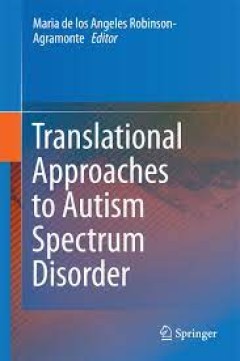
Translational Approaches to Autism Spectrum Disorder
This book addresses and synthesizes recent basic, translational, and clinical research with the goal of understanding the mechanisms behind autism spectrum disorder (ASD) and how they lead to altered brain function and behavior. Bringing clarity to these mechanisms will lead to more effective therapies for the various heterogeneous pathologies that comprise ASD. Currently there are few, if any,…
- Edition
- 1
- ISBN/ISSN
- 978-3-319-38657-7
- Collation
- XIV, 218
- Series Title
- -
- Call Number
- -
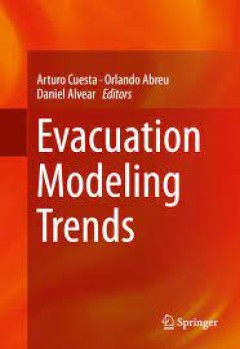
Evacuation Modeling Trends
This book presents an overview of modeling definitions and concepts, theory on human behavior and human performance data, available tools and simulation approaches, model development, and application and validation methods. It considers the data and research efforts needed to develop and incorporate functions for the different parameters into comprehensive escape and evacuation simulations, wit…
- Edition
- -
- ISBN/ISSN
- 978-3-319-20708-7
- Collation
- VII, 133
- Series Title
- -
- Call Number
- -
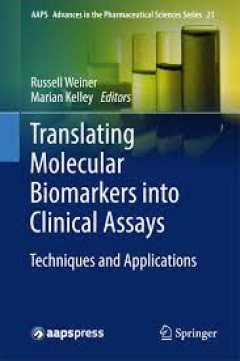
Translating Molecular Biomarkers into Clinical Assays
This handbook covers established and advanced techniques for biomarker analysis, such as guidelines and strategies for assay validation methods; different mathematical models that are necessary in contemporary drug discovery and development; and evaluation of new cytometry methods. Expertly curated by two practicing professionals in drug development and biotherapeutics, individual chapters are …
- Edition
- 1
- ISBN/ISSN
- 978-3-319-40793-7
- Collation
- XIII, 212
- Series Title
- AAPS Advances in the Pharmaceutical Sciences Series
- Call Number
- -
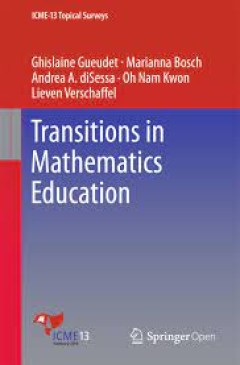
Transitions in Mathematics Education
This book examines the kinds of transitions that have been studied in mathematics education research. It defines transition as a process of change, and describes learning in an educational context as a transition process. The book focuses on research in the area of mathematics education, and starts out with a literature review, describing the epistemological, cognitive, institutional and socioc…
- Edition
- 1
- ISBN/ISSN
- 978-3-319-31622-2
- Collation
- X, 34
- Series Title
- ICME-13 Topical Surveys
- Call Number
- -
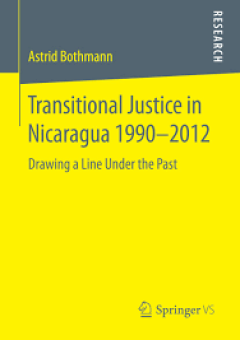
Transitional Justice in Nicaragua 1990–2012
Astrid Bothmann examines historical, political and socioeconomic factors that explain the absence of transitional justice in Nicaragua from 1990 to 2012. The author provides the first systematic analysis of the reasons for the lack of transitional justice in Nicaragua after the end of the Sandinista regime and the civil war (1990). Contrary to other Latin American states of the third wave of de…
- Edition
- 1
- ISBN/ISSN
- 978-3-658-10502-0
- Collation
- XIV, 320
- Series Title
- -
- Call Number
- -
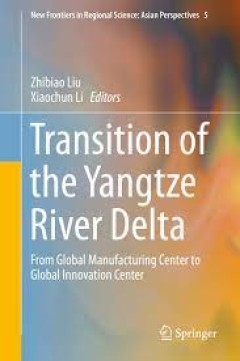
Transition of the Yangtze River Delta
This is the first English book that presents a professional analysis of the recent dynamic movement of the Chinese economy by focusing on the Yangtze River Delta region, which is the main engine of the Chinese economy. The impact of the international financial crisis on China’s economic development requires a change from the first wave of economic globalization oriented toward exports to the …
- Edition
- 1
- ISBN/ISSN
- 978-4-431-55178-2
- Collation
- X, 241
- Series Title
- New Frontiers in Regional Science: Asian Perspectives
- Call Number
- -
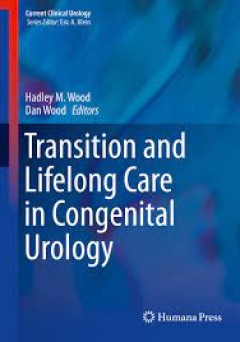
Transition and Lifelong Care in Congenital Urology
Transitional Urology is designed to fill a critical gap that exists in the published literature by comprehensively addressing the urological challenges facing adolescents and adults with complex congenital anomalies of the genitourinary system. It provides a valuable resource to pediatricians and pediatric urologists facing urological management issues beyond their expertise in their aging pat…
- Edition
- 1
- ISBN/ISSN
- 978-3-319-14041-4
- Collation
- X, 222
- Series Title
- Current Clinical Urology
- Call Number
- -
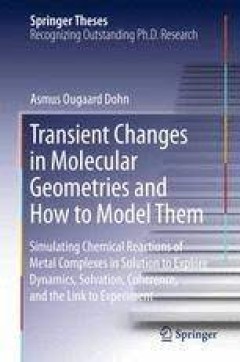
Transient Changes in Molecular Geometries and How to Model Them
This thesis examines various aspects of excess excitation energy dissipation via dynamic changes in molecular structure, vibrational modes and solvation. The computational work is carefully described and the results are compared to experimental data obtained using femtosecond spectroscopy and x-ray scattering. The level of agreement between theory and experiment is impressive and provides both …
- Edition
- 1
- ISBN/ISSN
- 978-3-319-18747-1
- Collation
- XXXVIII, 146
- Series Title
- Springer Theses
- Call Number
- -
 Computer Science, Information & General Works
Computer Science, Information & General Works  Philosophy & Psychology
Philosophy & Psychology  Religion
Religion  Social Sciences
Social Sciences  Language
Language  Pure Science
Pure Science  Applied Sciences
Applied Sciences  Art & Recreation
Art & Recreation  Literature
Literature  History & Geography
History & Geography